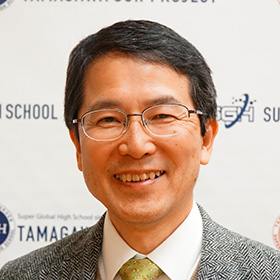During the last global career course for this school year, Mr. Eiichi Oshima, a professor at the Faculty of Tourism in Tamagawa University came to speak. Based on his experience as a diplomat in the Ministry of Foreign Affairs, he talked about how we can learn to adapt to a cosmopolitan world by considering diplomacy.
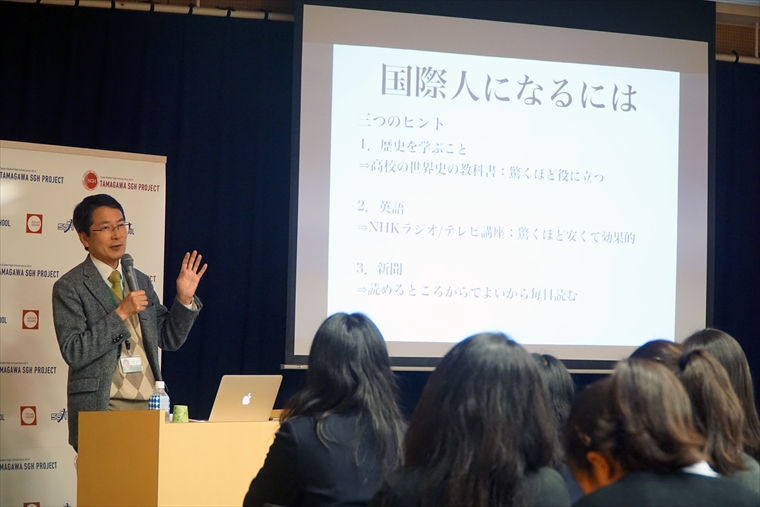
The theme of the lecture “Aim to become a cosmopolitan person –be involved with international cooperation” started out with an introduction of the Fijian Republic, one of seven countries where he has worked as a diplomat. It is also where Mr. Oshima stayed for two years after 2012.
The students got excited when they saw the pictures he brought and heard his stories, things such as what the food and fruits in tropical resorts are like and meeting the president in the middle of a market.
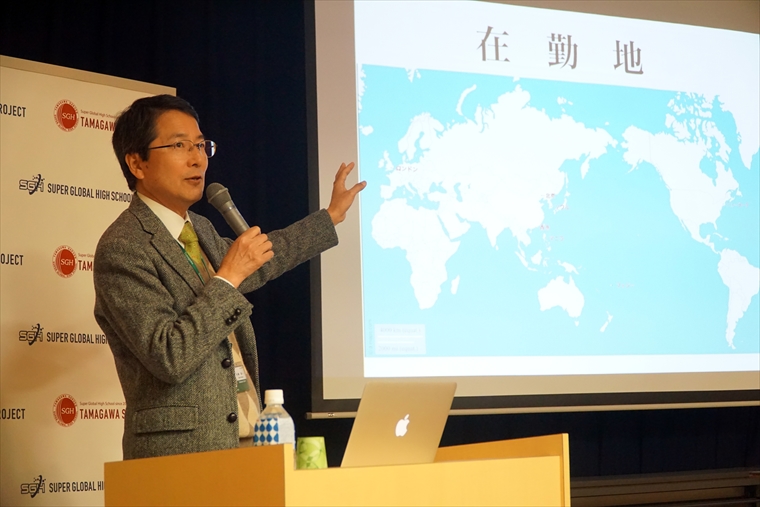
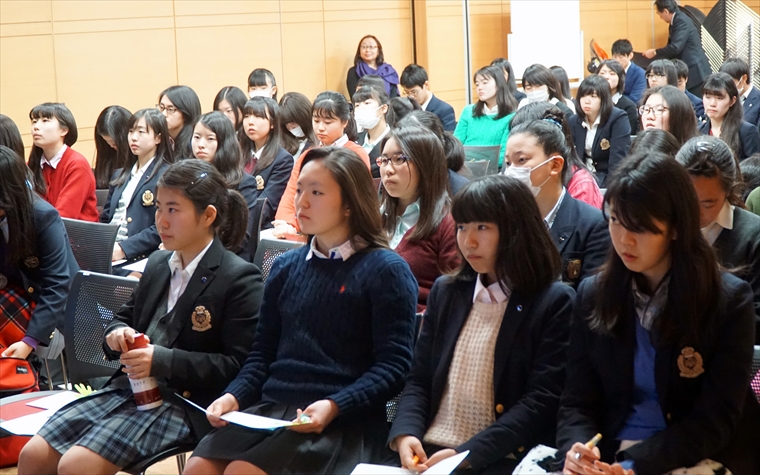
Until then, many students did not really know about Fiji. After listening they felt more familiar with the country. Then he finally started to explain about what diplomats do as a job using his own experiences in Fiji as an example.
Mr. Oshima said, “there are two goals for a diplomat. One is to maintain a good relationship with other countries to prevent problems from occurring. Another is to protect national interests. Adding a note to the second one, he mentioned it is not necessarily our own country’s benefit that we have to keep in mind but also how to have a win-win relationship is important.”
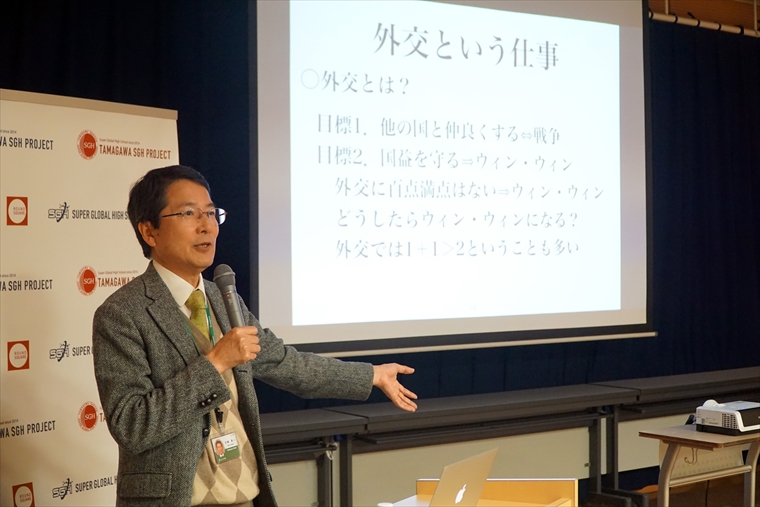
Japan had a loose sanction on Fiji due to political circumstances back in the times before he started working. Therefore, the local newspaper widely reported that “the new Japanese ambassador will get a cold shoulder” and he had difficulty engaging in diplomacy with Fiji as he started. He could not meet the prime minister for the first three months. When he finally got to see him, they ended up having a fight because of different opinions.
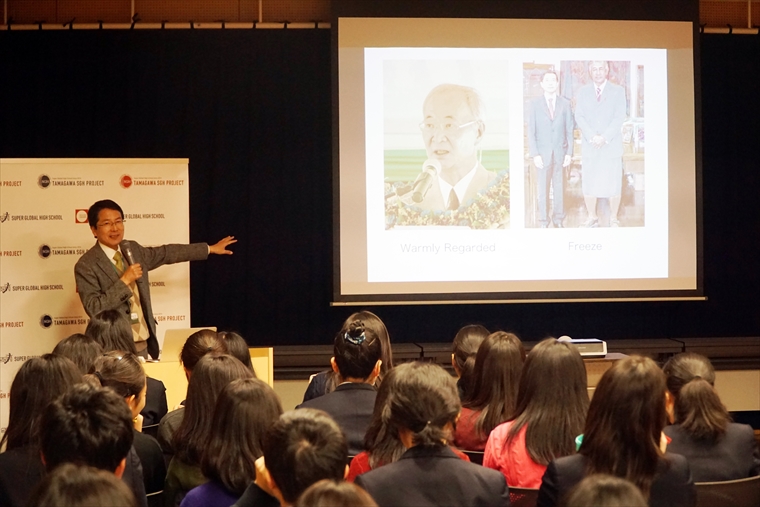
So Mr. Oshima did two things to improve their relations. One was to build up a trust and develop a true relationship with people in Fiji, such as government officials, and deepen it. Another one was to help the citizens in Fiji. He started doing things such as rebuilding broken bridges and doing projects that prevent flooding.
As a result, people were very grateful and they welcomed him with a local ceremony. After a year and a half, he reconciled with the prime minister and was able to regain good diplomatic relations.
With a gentle voice he clearly said, “when you talk about diplomacy, it’s all about relationships between people. First of all, you have to get to know the person.”
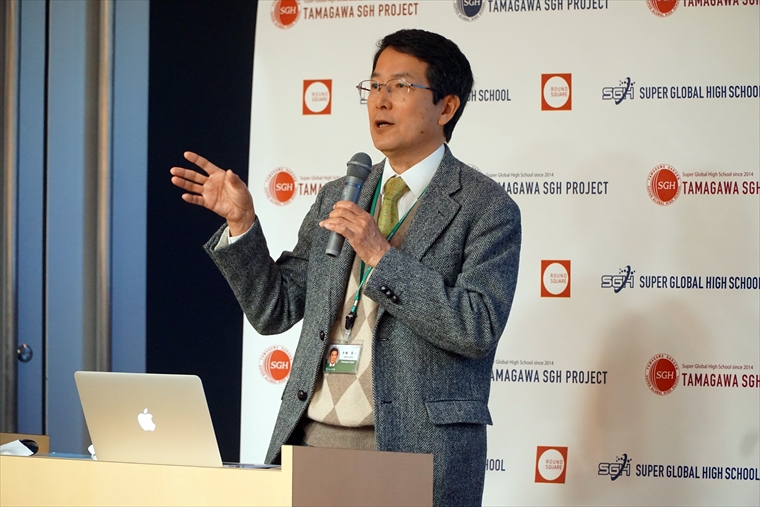
“what you have to do is to learn histry, English, and to read newspapers. From those sources of information, you can find a key to get to know your opponent. Also, by traveling overseas, you can learn and actually see and feel the differences between Japan and foreign countries, also you can learn how the food culture, lifestyle, and history are.” The students were taking notes as he spoke and noted many hints that they could start doing to become a more cosmopolitan person.
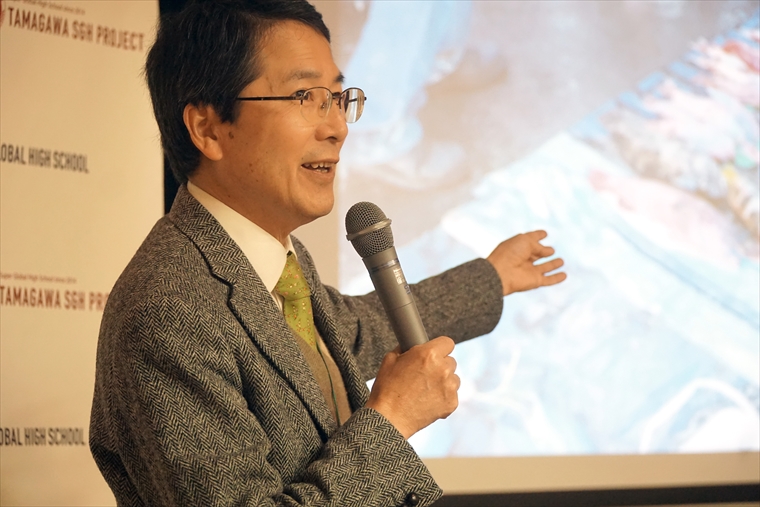
The students wrote that “I realized that being polite and knowing history is important to build relationships,” “I learned that it is important to understand and respect other countries and their opinions and also to give my own opinion, too.” Many students seemed to have thoughts and comments about building relationships.
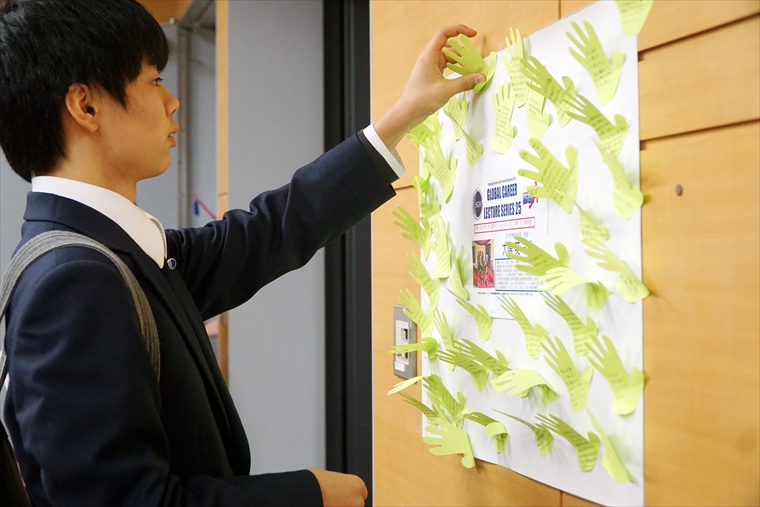
From this lecture, the important factors of diplomacy, like that the basics of connecting person to person, country to country were highlighted. “Getting along with the others,” and communication skills held a lot of power to become more cosmopolitan.




